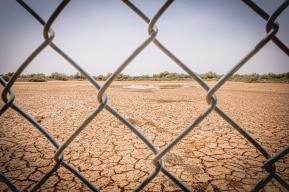The heritage then no longer becomes an external element in their lives, it becomes an integral and constitutive part of their history, thus creating a stronger sense of attachment.
“My deep interest and commitment for the preservation of heritage started in 2015. After collaborating as a researcher for the reviews “Carto” and “Moyen-Orient” and the French Institute of International and strategic studies (IRIS), I joined UNESCO as a Cultural Attachée. It was a crucial moment for the organization’s mandate on heritage protection, especially since armed conflicts had led to the tragic destruction of cultural sites in Iraq and Syria. This awoked something very strong in me and I knew that Heritage was going to be an important part of my path, both personally and professionally. During more than five years, I specialized in the challenges of heritage in the Arab States region and coordinated the creation of the future National Museum of Modern and Contemporary Art in Palestine. Today, I pursue my collaboration with UNESCO on different works among which is “The Creativity in the Arab region” in cooperation with the cultural sector of the organization. Continuing my commitment with respect to the Mediterranean heritage, I will be joining in spring 2021 the Sciences Po’s Middle Eastern and Mediterranean campus in Menton as a Head of the Major in Political Humanities.
After taking part in the Arab World Heritage Young Professionals Forum in December 2019 in Tunis, I felt even more determined to make a change in safeguarding heritage in the Middle East. The Forum’s trainings gave me more strength and motivation, while also allowing me to discover and practice new powerful tools that I am now able to use in my own youth-led initiatives.
More recently, and with the support of the UNESCO-UNOCT PVE Project, I developed a flagship publication and awareness-raising campaign entitled “Eternal Heritage” to promote the role of youth in Heritage preservation. The idea was to produce a collective, participatory and informative publication on the emblematic sites of the Middle Eastern region (Lebanon, Jordan, Palestine, Syria, Iraq, Libya and Yemen). The publication was conceived as a poetical journey and an invitation to rediscover the immutable heritage sites from the Middle East through an aesthetic point of view.
Storytelling can be an important part of inter-community and cross-cultural dialogue. This why the chore of the publication is composed of testimonies by young people, aged between 18 and 35 years old, living in various Middle Eastern countries, who tell us their feelings and opinions on their cultural heritage. The Observatory has a strong presence in the region, thanks to its network of local observers: they form the precious connections to local communities. By giving voice directly to young people, by allowing them to share their feelings and anecdotes on heritage, it is basically allowing them to free their words and to inscribe this heritage at the very heart of their personal history and their everyday life. The heritage then no longer becomes an external element in their lives, it becomes an integral and constitutive part of their history, thus creating a stronger sense of attachment.”
- Ilham Younes
Learn more about “Eternal Heritage” here - accessible to all and free of charge, in three languages (Arabic, English, French) in order to spread the message beyond border.
Watch the campaign’s video here.
Following the success of the Arab World Heritage Young Professionals Forum, and continuing their sense of engagement and purpose beyond the participation in the Forum, five young professionals implemented follow-up projects in the region, making heritage accessible to all, and leveraging it as a channel for peacebuilding in the communities. Through these projects, the participants put to practice the skills acquired during the Forum, particularly through the communication approaches, and took concrete actions towards the recommendations made by them in the Action Plan for the region.





